Last week, Ewan and co-star Jennifer Connelly attended the Rome Premiere of American Pastoral, photos are below.
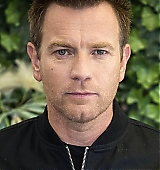






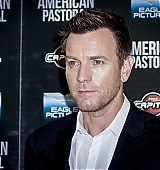
Press Events & Appearances > 2016 > October 3rd | American Pastoral Rome Premiere
Last week, Ewan and co-star Jennifer Connelly attended the Rome Premiere of American Pastoral, photos are below.








On September, Ewan attended the premiere of American Pastoral at the Zurich Film Festival and Hamburg Film Festival, here are photos.




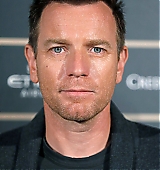
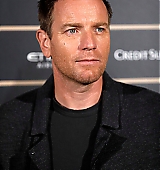

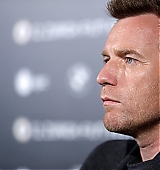
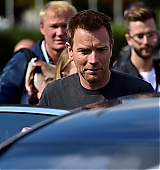
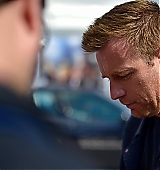

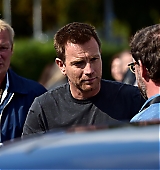

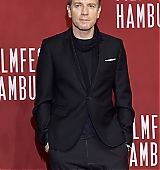

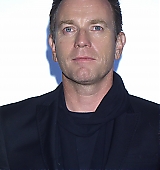
Ewan attended the San Sebastian Film Festival to promote American Pastoral. Here are photos.
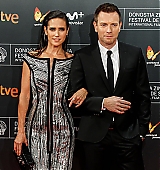
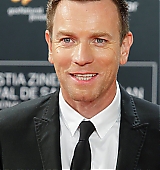
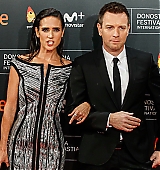
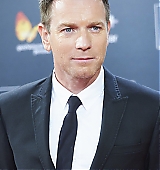
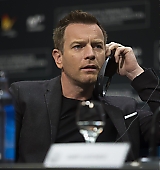
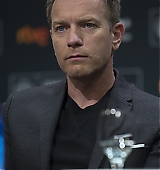
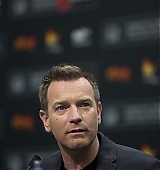
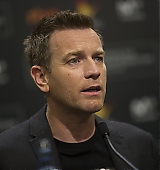
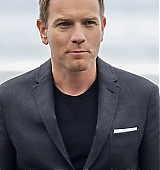
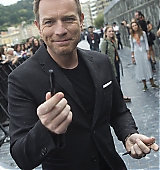
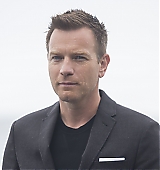

A interesting article written by Ewan himself, about his trip to Iraq, for the Financial Times.
Alone. Scared. Vulnerable. At the hands of traffickers. This is how we talk about child refugees. It wasn’t until my visit to Iraq this summer that I truly understood the real — and devastating — truth of these words.
My visit helped me to put a face to the global displacement crisis the world is facing. A crisis where the numbers are so enormous that it sometimes feels like the challenge is too much to overcome. Globally, about 50 million children have been uprooted. That’s almost the same as the entire population of England. And it’s a conservative estimate. More than half of these girls and boys fled violence and insecurity, in tremendous numbers, from Syria, Afghanistan and Iraq.
There is no way to prepare for the stories you hear during a visit to the field — and I discovered that this was more true than ever in northern Iraq. I’d just finished filming T2: Trainspotting in Scotland and suddenly I found myself 30km away from the front line. I have travelled many times with Unicef, and seen some really life-changing things — both good and bad — but the accounts I heard there completely winded me.
One story etched in my memory is Muhammad’s. Like thousands of children, Muhammad escaped Mosul when Isis seized control in 2014. Iraq’s second-biggest city and its surrounding areas were thrown into turmoil as Isis sent half a million people fleeing, restricting access to food and basic services. Now living in Erbil, the capital of the Kurdistan region of Iraq, Muhammad, 10, and his 12-year-old brother are the main breadwinners of the family. Their father has been missing for years, and is presumed dead. The boys make money selling nylon bags at the local market and bring home about $4 a day for the family to buy food. To survive.
With hollow eyes, Muhammad’s mother told me the family’s story. Their previous tent, in one of the crowded displacement camps I visited, had caught fire and killed her youngest son, Muhammad’s baby brother. She pointed out the burns on Muhammad’s hands. Since Muhammad fled Mosul, he has suffered from severe behavioural problems, exacerbated by the breakdown of his family. He is a quiet boy and wasn’t able to talk about the past, but he did tell me: “I like to draw and play with trains.” Thankfully, he is receiving psychosocial care and is able to do these things in a “child-friendly space”, set up as an area for children to play and learn.
The challenge facing organisations providing support for children like Muhammad is to make sure that the deterioration of the social systems does not lead to increased exploitation, violence and abuse against children. How do you help their wounds heal, protect them from further harm and get them back into a routine, school and normality?
Nobody truly knows what will happen when Mosul is liberated from Isis control. But one thing is for sure: tens of thousands more children will face displacement and homelessness. It is estimated that between 1.2 million and 1.5 million people still live in the city. Remember the scenes of thousands of people coming out of the liberated Fallujah? Multiply that 15 times. What was apparent to me in Iraq was that the challenge facing aid agencies, when the impending offensive happens, is truly unprecedented.
?…?
I travelled to Debaga displacement camp, which is close to Mosul, where hundreds of people were arriving every day to escape conflict and violence. Camp construction couldn’t keep up with the new arrivals. Bulldozers were busily flattening the land, toilets were being constructed and tents erected. Aid workers were frantically giving out packs of life-saving supplies — water, hygiene kits and food.
Debaga was built for 5,000 but is now home to more than 35,000. Each person arrives with his or her own horror story. A further 15,000 are expected in the coming months. The night before we got there, 200 people escaped by river to reach the camp. It was heartening to see men shaving their beards and enjoying a small slice of freedom for the first time in two years. Although, of course, this camp does not provide freedom. Far from it.
As I walked through the vast crowds, countless people came up to me. Not because they recognised me but because they had to tell someone about their dire situation. One father, Ali, told me that when Isis came, they started putting pressure on him to give up his sons to fight. He feared they would be abducted and, when Isis blew up his home as a scare tactic, he knew he had to get his boys out. The disruption caused by the advancing government forces gave him a window of opportunity to flee.
Ali and his family now live in the shadow of an abandoned football stadium, in a tent provided by UNHCR, the UN Refugee Agency. Some of his children do not have shoes, and he told me he felt a sense of hopelessness as a father. How can you possibly provide for children in this dreadful situation?
?…?
As we walked back to the car, I was caught totally by surprise at the sight of the biggest bouncy castle I have ever seen. A local NGO had brought it in to give a moment of escape. There were a hundred joyful children throwing themselves into the air, screaming, unable to contain their excitement. Such a stark contrast to the barren desert filled with dusty tents that surrounded it. It was so obvious to me at that moment how vital it is these children continue to get the chance to play; the opportunity to be children.
Internally displaced and refugee children in Iraq and other conflict zones are among the most vulnerable people on earth and the situation is getting worse. Consider one shocking statistic: the number of child refugees globally has more than doubled in just 10 years. And when these children do have the opportunity to flee to another country, the threats they face do not disappear. Families can often struggle to gain a foothold; they disproportionately face poverty and exclusion and are in desperate need of essential services and protection. If you or I feel let down by or angry at the asylum system for refugees in Europe, how must they feel?
Supporting refugee and migrant children at home and around the world is a shared responsibility. Right now, it’s clear that we are struggling to cope with the numbers of people on the move. As an ambassador for Unicef, my role is to help carry the voices of Muhammad and Ali as far and wide as I can. At the end of this week, I will be heading to New York to tell their stories to politicians, delegates and journalists who are gathering for two summits on refugees and migrants. Together these summits offer a defining moment for our generation, and I hope that our politicians rise to this complex challenge in a way that makes a real difference to the children I met.
?…?
Back in Iraq, Mirna, an 11-going-on-21 film-star-in-the-making, asked me to take her message to world leaders: that children in Iraq or, indeed, anywhere, deserve equal rights and a chance to be children. “War or peace, we are all the same. We are all children,” she said. As she walked me round the disused, half-finished shopping mall where she has lived for over a year with more than a thousand other families, she told me how the local community donated food, clothes and supplies and came together to welcome those displaced by the conflict. I’m desperate for us to do the same in the UK, in Europe and beyond.
The day I left, Mirna recorded a video message for me on someone’s iPhone — I saw it when I got back. She told me she was happy to have been able to show me — and the world — the shopping centre her family lived in. As I watched, it really hit home how far away I was from her, how far all of us are away from helping children like Mirna, who don’t always have a voice or someone to tell their story.
On my final day in Erbil, a pickup truck drove past us in the camp. Loaded on to the back was the body of a young man. In the distance, I could hear cries of grief and soul-destroying desperation.
I’ll never know what happened to this poor soul but I’ll think about him for a long time. For him, the war is over but for his family, for Mosul, for millions of Iraqis and for the 65 million refugees and displaced people worldwide, the desperate and relentless struggle goes on.